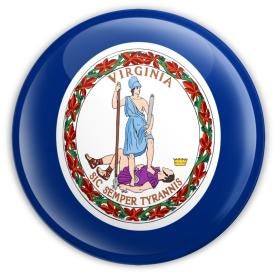Weighing in on the growing debate around certificate of need (“CON”) laws, the Federal Trade Commission and the Antitrust Division of the U.S. Department of Justice (the “Agencies”) issued a joint statement on October 26, 2015, advocating the repeal or reform of Virginia’s Certificate of Public Need (“COPN”) laws, which regulate the construction of health care facilities and the provision of health care services.
The Virginia Department of Health describes the purpose of the COPN program as containing health care costs while ensuring access to health care for all residents at a reasonable price and the financial viability of the facilities providing such care. Virginia’s COPN program requires certain health care facilities to secure a public need determination from the State Health Commissioner (“Commissioner”) prior to initiating certain projects, which include general acute care services, perinatal services, diagnostic imaging services, cardiac services, and nursing facility services. The COPN program affects a variety of health care facilities such as hospitals, nursing homes, psychiatric facilities, and rehabilitation hospitals. To determine whether a public need exists, the Commissioner looks to certain factors, which can include the proposed project’s effects on existing barriers to access to care. In addition, similar to a number of other states operating CON programs, the Commissioner can condition the issuance of a COPN on the provision of charity care in the Commonwealth.
The Virginia General Assembly, through the 2015 Appropriation Act, mandated the creation of a COPN Work Group to review the state’s COPN program and its impact on access to care. In particular, the COPN Work Group is charged with developing specific recommendations for changes to the COPN process to address any problems or challenges it identified from its review by December 1, 2015. Some of its recommendations will be introduced during the 2016 Session of the General Assembly.
In response to a request by Virginia state delegate Kathy Byron, the Agencies issued a joint statement to the COPN Work Group on October 26, 2015. The Agencies state several reasons for the repeal or narrowing of the current COPN laws in their joint statement, including removing barriers to expansion, fostering innovation, and promoting consumer choice. Further, the Agencies suggest that CON laws have not controlled health care costs, but instead have afforded existing providers the market power to increase health care costs. The joint statement confirms the Agencies’ longstanding preference for market forces and increased competition in healthcare provider markets.
In a concurring statement to the Agencies’ joint statement, Commissioner Julie Brill cautions that the joint statement’s conclusion is based largely upon the application of the Agencies’ anti-competitive expertise to a complex and distinct market, not solid empirical support. Commissioner Brill also acknowledges that Virginia’s COPN program may serve as a vehicle for the state to achieve a range of health care goals, in addition to cost containment, such as the provision of charity care, establishing standards for providing services, preventing entities from providing certain services, and assessing quality by monitoring outcomes.
Virginia’s decision to review its COPN laws is not unique. Rather, it is indicative of similar discussions on the benefits of certificate of need laws occurring in a number of other CON state forums. Several states have initiated studies and conducted hearings to evaluate the effectiveness of their CON programs, including Florida, New York and Pennsylvania. This year, CON opponents in North Carolina used the legislative process to chip away at, but not repeal, the state’s CON laws. In addition to market theories, Virginia’s public policies in regulating health care and ensuring charity care and access to care for medically underserved areas are likely to be equally considered as part of the December 1st recommendations, as well as echoed in similar discussions in other CON state forums.



 i
i


